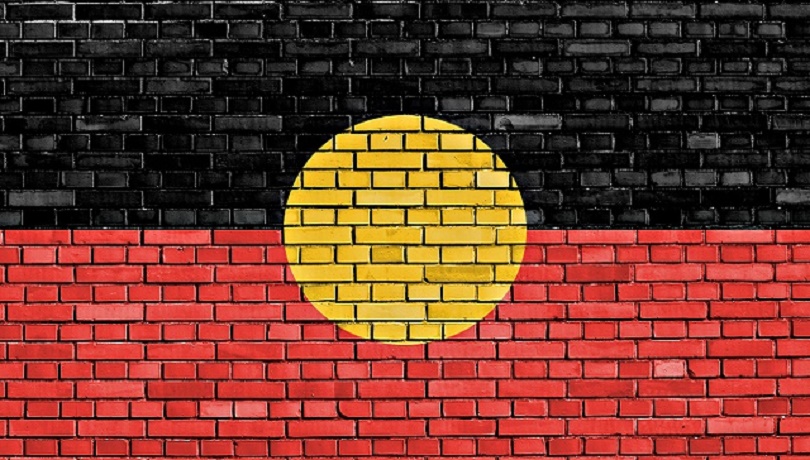Australian retailers work towards reconciliation

Two weeks ago, on the heels of National Reconciliation Week 2020, The Iconic submitted its first Reconciliation Action Plan (RAP) to Reconciliation Australia for review. The document formalised the online retailer’s support for reconciliation and laid out specific targets it will work towards in the years ahead.
Since it is the retailer’s first RAP, the targets are primarily around researching and learning about Aboriginal and Torres Strait Islander cultures and understanding how to deliver initiatives in a way that is meaningful for Indigenous Australians. If the plan is endorsed, The Iconic will become one of just a handful of retailers to have a RAP in place.
“What we have discovered during the development process is that we have a lot of work to do to continue building our deep understanding of Indigenous culture,” The Iconic told Inside Retail in an email. A company spokesperson said this response reflected the view of everyone in the company and asked that it not be attributed to any one person.
“No doubt the first stage of that learning will be during the submission/endorsement process with Reconciliation Australia, and we look forward to next steps.”
The RAP program was launched in 2006 to provide a framework for organisations to work towards reconciliation. Each organisation’s RAP is unique. It might focus on promoting employment of Aboriginal and Torres Strait Islander people, sourcing from Indigenous-owned businesses or working with a charity or nonprofit.
Today, more than 1100 workplaces have a RAP, but just a handful of retailers have one, including David Jones, Ikea, Australia Post, Caltex, Woolworths Group (Woolworths, Countdown, Dan Murphy’s, BWS, Cellarmasters and Big W) and Wesfarmers (Bunnings, Officeworks, Kmart, Target and Catch).
Winc, the B2B office supplies business, and most major property companies, including Scentre Group, Vicinity Centres, GPT, Frasers and Lendlease, also have RAPs.
Not just for government
According to Jodie Sizer, owner and co-CEO of PwC’s Indigenous Consulting, retailers may be operating under the false assumption that RAPs are only for government organisations or businesses with significant procurement activities.
“In retail, people might think, ‘What can I do?’ But, in your sphere of influence, there might be a whole series of things. What can you do to bring together a community of champions to look at unconscious bias?” Sizer told Inside Retail.
Earlier this year, PwC teamed up with Australia Post, Lendlease, Telstra, National Australia Bank and the University of Melbourne to launch Meereeng 50, an accelerator program aimed at making Aboriginal and Torres Strait Islander-owned businesses more competitive in corporate procurement processes.
“Together, we have a lot of supply chain spend, and we thought, ‘Why are we going to the same suppliers?’ We need to make an extra effort and better understand our practices so we can have a real impact on small businesses and Aboriginal businesses,” Sizer said.
Meereeng 50 is part of PwC’s most recent RAP, which covers the period from March 2019 to March 2023. The plan is known as an Elevate RAP, the highest of four levels offered by Reconciliation Australia. The other levels are: Reflect, Innovate and Stretch.
It goes beyond setting targets to employ a certain number of Aboriginal and Torres Strait Islander people and source from Indigenous-owned businesses to developing PwC’s own cultural competency training package and measuring its work against the United Nations Declaration on the Rights of Indigenous Peoples.
“It took us two years to reflect and say, ‘What’s the best we can do to leverage everything we can under PwC, to bring all of our PwC muscle and intellect to support the way forward?” Sizer said.
Barriers to employment
Wesfarmers is currently in the process of negotiating its own Elevate RAP with Reconciliation Australia. It will be the retail giant’s eighth RAP since it first developed one in 2010. Over the past 10 years, Wesfarmers has learned a lot about breaking down barriers to employment for Indigenous Australians.
“One of those things is around making sure community members understand what the requirements are for a role,” Phil Sillifant, Wesfarmers’ Aboriginal and Torres Strait Islander manager, told Inside Retail.
“Some of our team members are the first ones in their family to ever get a job. That was a big learning curve for us to understand that we needed to help young people with information sessions and store tours.”
In 2018, Wesfarmers achieved its target of 3 per cent Aboriginal and Torres Strait Islander employment, on par with the broader population. However, after Coles was spun off, it slipped down to less than 2 per cent. Wesfarmers is working to reach its 3 per cent target again and is setting new goals around career progression for its Indigenous employees.
“These things don’t just happen, you need to invest in them. We have dedicated teams to support Aboriginal employment, but also areas of cultural awareness training, to make sure the workplaces are receptive and welcoming places for Indigenous team members to work,” Naomi Flutter, Wesfarmers’ executive general manager of corporate affairs, told Inside Retail.
Comment Manually
You must be logged in to post a comment.

No comments